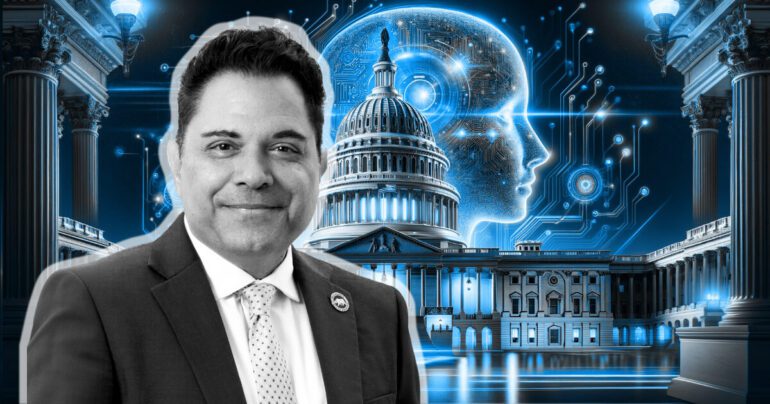TL;DR:
- Senator Steve Padilla introduces two bills, SB 892 and SB 893, to regulate AI use in California state agencies.
- SB 892 focuses on establishing safety, privacy, and non-discrimination standards for AI services, requiring providers to meet these standards for state contracts.
- SB 893 aims to create a California AI research hub, providing resources and data access for academic institutions.
- These bills follow earlier efforts by Senator Scott Wiener to address transparency and security in AI use.
- California’s thriving AI industry and ongoing tech-related legislation make it a focal point for AI governance.
- State lawmakers in various regions are also exploring AI regulation for state agency use.
Main AI News:
In a move to ensure the ethical and responsible use of artificial intelligence (AI) within state agencies, California Senator Steve Padilla, a Democrat, has introduced two crucial bills, Senate Bills 892 and 893. These bills are aimed at establishing a comprehensive framework for AI governance and access to resources.
Senate Bill 892 primarily focuses on setting stringent standards for the use of AI by California’s Department of Technology. Under this legislation, the department will be tasked with developing safety, privacy, and non-discrimination standards pertaining to AI services. Furthermore, it imposes a crucial requirement that the state of California can only contract with AI service providers who meet these established standards. This move is expected to enhance accountability and ethical practices in the deployment of AI within the state’s government functions.
On the other hand, SB 893 introduces a groundbreaking initiative by establishing a California AI research hub. This hub is envisioned to serve as a valuable resource for academic institutions, offering access to compute resources and data. By fostering collaboration and research in the field of AI, this bill aims to position California as a leader in AI innovation and development.
Senator Padilla’s bills build upon earlier efforts to regulate AI in the state, following a bill introduced by Senator Scott Wiener last year. Wiener’s bill primarily focused on transparency standards for AI models, security measures, and the establishment of a state AI research center. Although this previous bill was classified as an intent bill, it laid the foundation for more comprehensive AI regulation.
California is already home to a thriving AI industry, with numerous companies and investors dedicated to advancing AI technology. The state has also taken steps to address tech-related issues, including online safety for children and the right-to-repair act.
While federal policymakers have proposed AI regulations at the national level, none have passed thus far to address the growing concerns surrounding AI safety. This void has prompted several state lawmakers across the country to take action. States like Texas, West Virginia, North Dakota, Louisiana, and Puerto Rico have initiated efforts to monitor and study AI systems used in state agencies. In a similar vein, Connecticut has taken the proactive step of reviewing all AI services in use and plans to regularly assess these systems.
Conclusion:
Senator Padilla’s proposed bills signal California’s commitment to ethical AI governance within its state agencies. This move aligns with the state’s robust AI industry and ongoing efforts to address tech-related issues. It underscores the growing importance of responsible AI deployment in both government and business sectors, highlighting the need for companies to adhere to evolving ethical and transparency standards in the AI market.

